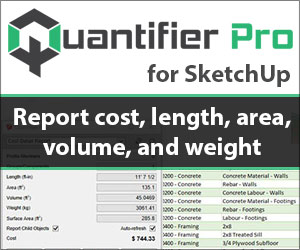Author : Andrew Campbell
Designing Operating Models - Fact File

This workshop is about how to design your business. The focus is on operations and how to link operations to strategy. For example, we will help you design a TOM (target operating model) that will deliver the business strategy. The workshop will help you identify changes you can make to the existing operating model that will open up new strategic possibilities.
The overall objective is to give you tools that will help you transform ... through higher margins, increased sales or both.
Who is it for?
You currently have a role in a business improvement, strategy or advisory function. You may be a member of a Lean team; managing projects as part of a Transformation team; a business architect or strategist in Operations or IT or Planning. You may be a consultant or an analyst in Business Improvement or Process Excellence. You may be a strategist or business partner in HR or IT.
Whichever of these roles you have, you want to ensure that your operating model is efficient, innovative and aligned with your business strategy. You want to better understand the operating model of your business, and have more influence over the major choices made.
You may have been involved in incremental improvements, and are now looking for more transformational improvements. You may know how to deliver change projects, and now want to help decide which projects to initiate. You may be an expert in Lean methodologies, and now want to be more strategic in the changes you make. You may be doing design work for IT or HR or Finance, but want to contribute to the broader business design. Importantly you will feel that you have something to contribute as well as something to learn.
The workshop has four parts to it:
- Six hours of structured preparation: four hours to read assigned articles (we also offer an online test that helps participants confirm that they have understood the reading); two hours to prepare a case study and participate in an online discussion of the case (this helps participants orient their thinking to the topics of the workshop)
- Two-day residential workshop
- Conference calls one month and three months after the workshop to share experiences and continue the joint learning
- Finally, PA Consulting and Ashridge will continue to share their learning in this area with regular updates on insights into business design.
The link between Ashridge and PA Consulting
The workshop is run jointly by Ashridge Business School and PA Consulting Group, combining their respective strengths in research, teaching and practice. Ashridge is strong in strategy and business models, as well as related issues such as organisation design and strategy execution. PA brings experience and practice in business design, in developing and implementing operating models and in delivering transformational change.
This workshop is an opportunity for both Ashridge and PA to share knowledge and explore the issues organisations are facing right now. Our shared ambition is to develop better insights, frameworks and tools for managers involved in business design, business model innovation, business improvement, end-to-end process design and target operating models.
Your learning outcomes
Operating model design is a developing field. Some frameworks and tools are well established, but some are still evolving. We will discuss the well-established tools and explore new ones. You will learn about:
- The difference between a business model and an operating model
- The design process, in particular how to turn business strategy into design principles by clarifying capabilities
- Tools for documenting business strategy in a way that is helpful for operating model design
- Financial analysis tools, such as the Dupont Model, for linking operating model choices to financial outcomes
- Tools for challenging the status quo and encouraging innovation
- Frameworks for thinking about technology
- Tools for checking the robustness of new designs particularly organisation structure and relationships with suppliers and business partners.
Since this is a workshop, we will all be learning together. Hence, your learning will depend, in part, on the other participants.
- Cover Story
-
 SketchUp Can Help You Win Interior..
SketchUp Can Help You Win Interior.. -
 Best Laptops for SketchUp
Best Laptops for SketchUp -
 How to Resize Textures and Materials..
How to Resize Textures and Materials.. -
 Discovering SketchUp 2020
Discovering SketchUp 2020 -
 Line Rendering with SketchUp and VRay
Line Rendering with SketchUp and VRay -
 Pushing The Boundary with architectural
Pushing The Boundary with architectural -
 Trimble Visiting Professionals Program
Trimble Visiting Professionals Program -
 Diagonal Tile Planning in SketchUp
Diagonal Tile Planning in SketchUp -
 Highlights of some amazing 3D Printed
Highlights of some amazing 3D Printed -
 Review of a new SketchUp Guide
Review of a new SketchUp Guide
- Sketchup Resources
-
 SKP for iphone/ipad
SKP for iphone/ipad -
 SKP for terrain modeling
SKP for terrain modeling -
 Pool Water In Vray Sketchup
Pool Water In Vray Sketchup -
 Rendering Optimization In Vray Sketchup
Rendering Optimization In Vray Sketchup -
 Background Modification In sketchup
Background Modification In sketchup -
 Grass Making with sketchup fur plugin
Grass Making with sketchup fur plugin -
 Landscape designing in Sketchup
Landscape designing in Sketchup -
 Apply styles with sketchup
Apply styles with sketchup -
 Bedroom Making with sketchup
Bedroom Making with sketchup -
 Review of Rendering Software
Review of Rendering Software -
 Enhancing rendering for 3d modeling
Enhancing rendering for 3d modeling -
 The combination of sketchup
The combination of sketchup -
 Exterior Night Scene rendering with vray
Exterior Night Scene rendering with vray






